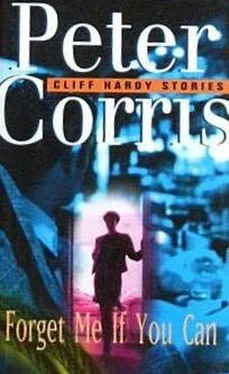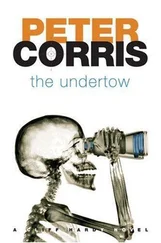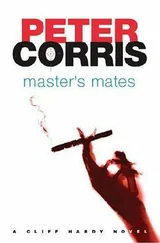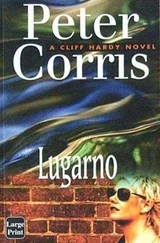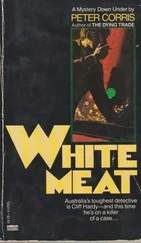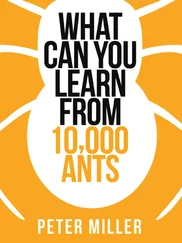Peter Corris - Forget Me If You Can
Здесь есть возможность читать онлайн «Peter Corris - Forget Me If You Can» весь текст электронной книги совершенно бесплатно (целиком полную версию без сокращений). В некоторых случаях можно слушать аудио, скачать через торрент в формате fb2 и присутствует краткое содержание. Жанр: Криминальный детектив, на английском языке. Описание произведения, (предисловие) а так же отзывы посетителей доступны на портале библиотеки ЛибКат.
- Название:Forget Me If You Can
- Автор:
- Жанр:
- Год:неизвестен
- ISBN:нет данных
- Рейтинг книги:5 / 5. Голосов: 1
-
Избранное:Добавить в избранное
- Отзывы:
-
Ваша оценка:
- 100
- 1
- 2
- 3
- 4
- 5
Forget Me If You Can: краткое содержание, описание и аннотация
Предлагаем к чтению аннотацию, описание, краткое содержание или предисловие (зависит от того, что написал сам автор книги «Forget Me If You Can»). Если вы не нашли необходимую информацию о книге — напишите в комментариях, мы постараемся отыскать её.
Forget Me If You Can — читать онлайн бесплатно полную книгу (весь текст) целиком
Ниже представлен текст книги, разбитый по страницам. Система сохранения места последней прочитанной страницы, позволяет с удобством читать онлайн бесплатно книгу «Forget Me If You Can», без необходимости каждый раз заново искать на чём Вы остановились. Поставьте закладку, и сможете в любой момент перейти на страницу, на которой закончили чтение.
Интервал:
Закладка:
I had sadness, anger and fear to exorcise. I found a. 303 rifle and ammunition in Driberg’s shack and I shot every one of the animals big enough to take a bullet. The rabbits and rats were securely held and I left them for the authorities to deal with. I took Driberg back to Cathedral Beach and made the phone calls to Hervey Bay and Sydney and gave all the explanations. I wasn’t there when they dug up the bodies of Horst Bucholtz’s kids nor when they held a kind of commemorative service for them on the creamy white beach south of Sandy Cape. Bucholtz sent me a photograph of the event and I’ve kept it. Great beach.
Cross My Heart
‘You know me, Cliff,’ Tommy Herbert said, ‘honest as the race is long.’
Tommy was a jockey and life was a joke to him. He’d broken his neck as a twelve-year-old riding trackwork, survived to become a moderately successful rider, and regarded every day of his life as a bonus. He was still making jokes even though he’d copped a five-year suspension that would certainly end his career. Tommy was nearing forty, having trouble with his weight. He was pretty well-fixed but he needed another couple of good years of steady earnings, saving and investment to set him up.
‘I never heard any different, Tommy,’ I said.
‘Have I ever put the handbrake on? Sure, when the horse was ready to kill itself trying and had no hope. Have I ever backed a horse I wasn’t riding? Yeah, when I’d lost the ride on account of my weight and I knew it was a good thing.’
‘Jockey’s aren’t allowed to bet.’
Tommy lit a cigarette and fanned the smoke. He said he hated smoking and only did it to keep his weight down. Maybe. He was tall for a jockey, about five foot five and he didn’t have a beaky nose or a squeaky voice. Pass him in the street and you wouldn’t guess his profession unless you looked at his hands and wrists. They were over-developed and odd-looking. ‘I’d sorta announced my retirement. Then I de-retired.’
I smiled. ‘You’re stretching it, mate, but I take your point. No batteries, funny whips, six-way turf talks with other riders?’
‘Cross my heart,’ he said. ‘You don’t hear that any more do you? Be a good name for a horse.’
‘So, what d’you want me to do?’
He stubbed out the cigarette which looked like a matchstick in those huge hands. ‘I got five years for involvement in race-fixing. I’m appealing. Hearing’s in two weeks. I want you to investigate those four bastards that put me in this and get them to change their bloody stories.’
‘It’s a bit late in the day.’
He shrugged. ‘It was all such bullshit I didn’t take it seriously. I set the whole thing up? Me? I was into Brucie Bartlett for two hundred grand? I never even met the man.’
I believed him but I had to play the devil’s advocate. ‘The way I heard it, there’s a tape.’
‘He rang me. It was weird. He said all these strange things. I was tired and pissed-off. I’d been in the sauna for an hour and hadn’t eaten for a day. Low blood sugar. I didn’t know what I was saying. It sounds bad but it was all a fake.’
I like the races enough to go to the track half a dozen times a year and have TAB bets once or twice a month. Mostly doubles and quinellas when I get the time to nut them out. I’ve lost more than I’ve won, but factor in the pleasure and excitement and I’d reckon I’m about even. I’d met Tommy when I was bodyguarding a horse five or six years back. The horse got to the post and won with Tommy on top. I backed it and won money. I saw Tommy from time to time after that-we jogged together at Bondi a few times, went to a couple of fights. He was an acquaintance more than a friend but I liked him and wanted to help, but business is business.
‘I charge two hundred a day, Tommy, and expenses. You’re looking at a couple of grand minimum, and no guaranteed result.’
He grinned. ‘You’re talking to a jockey, remember. Guaranteed results stink. As for the money,’ he opened his mouth and bared his even, white teeth. ‘My dentist charges two hundred bucks a fucking hour!’
‘Okay,’ I said. ‘You’ve hired me.’
The case against Tommy was this: four jockeys, Lockie Mallet, Rex Goot, Tony Zelinka and Owen Johns, claimed that Tommy had approached them with the proposition that they run dead in a two-year-old handicap at Randwick. He claimed to have a big bet on the long-priced ‘bushie’ he was riding and that their non-taxable, non-traceable share would dwarf their normal riding fees and bonuses. According to the jockeys, Tommy had named the bookmaker concerned as Bruce Bartlett. Goot had approached Bartlett and got confirmation of the bet which, he said, Tommy had made on the nod.
Goot, acting as a spokesman, reported the matter to the stewards immediately before the race. He claimed that he had been unable to contact Bartlett until this point and so wasn’t sure that Tommy was serious. The chief steward cautioned the jockeys to let their horses run on their merits and allowed the race to proceed. Tommy’s horse won easily. Bartlett was interviewed and confirmed Goot’s story. Tommy was summoned to appear before the committee. The evidence was heard, including a taped conversation between Tommy and Bartlett which appeared to substantiate the accusations. Tommy was given his suspension; Bartlett was fined ten thousand dollars for betting irregularities; the other jockeys were privately commended by the committee.
Sometimes you work on the assumption that your client is lying, sometimes that he or she is telling part of the truth, rarely can you assume you’re getting the straight goods. It affects your attitude and approach but it doesn’t matter as much as might be thought. Usually, it sorts itself out. I gave Tommy the benefit of most of the doubt, rating him at about 75 per cent as a truth-teller. Above average. Still, I ran a quick check on him in the usual way, forking out money to people who know how to crack the computer codes, and came up with nothing: he hadn’t bought anything expensive, paid off any loans or debts or done anything to suggest he’d come into money. I hadn’t expected anything different.
I did the same on the four jockeys and waited for the results. I spent time by day and night following each of them and tapping all the sources I have that intersect with the racing world-a few cops, an ex-bookie, a former clerk of the course at Warwick Farm, a callgirl controller, a gym manager. I made notes as my observations and the information accumulated, avoiding premature conclusions. I put a lot of kilometres on the Falcon, quite a few drinks down my throat and the throats of others and exercised the vocal cords in smoky pubs, steamy gyms and quiet parks.
Mallet lived alone in a Kensington flat, drove a Mazda and seemed to have no interests other than horses. He’d missed the last two corporation payments on his flat. Zelinka had a wife and four kids in Matraville and had recently dropped a girlfriend in Paddington and acquired another in Darlinghurst. He shared her with several other men; she wasn’t very good-looking and consequently not very expensive. Johns was a very low-key, low-profile homosexual who lived with a young strapper. He drove a Holden Statesman but was slightly behind on the payments. His friend had recently switched from a motorbike to a scooter. They seemed to spend most of their time watching videos.
Rex Goot was a little more interesting. Older than the others at about thirty-four, he’d had a topsy-turvy career as a rider with some big wins, long, bare stretches and more than his share of suspensions for minor infringements. He was considered a good reinsman but ‘cranky’ and inclined to let owners and trainers know his opinion of their horses and methods. He was separated, rented a modest semi in Randwick and his last maintenance payment cheque for his two children had bounced. His wife had re-presented it only to have it bounce again. Then it was third time lucky with a very angry Mrs Goot having to cough up the default fees.
Читать дальшеИнтервал:
Закладка:
Похожие книги на «Forget Me If You Can»
Представляем Вашему вниманию похожие книги на «Forget Me If You Can» списком для выбора. Мы отобрали схожую по названию и смыслу литературу в надежде предоставить читателям больше вариантов отыскать новые, интересные, ещё непрочитанные произведения.
Обсуждение, отзывы о книге «Forget Me If You Can» и просто собственные мнения читателей. Оставьте ваши комментарии, напишите, что Вы думаете о произведении, его смысле или главных героях. Укажите что конкретно понравилось, а что нет, и почему Вы так считаете.
